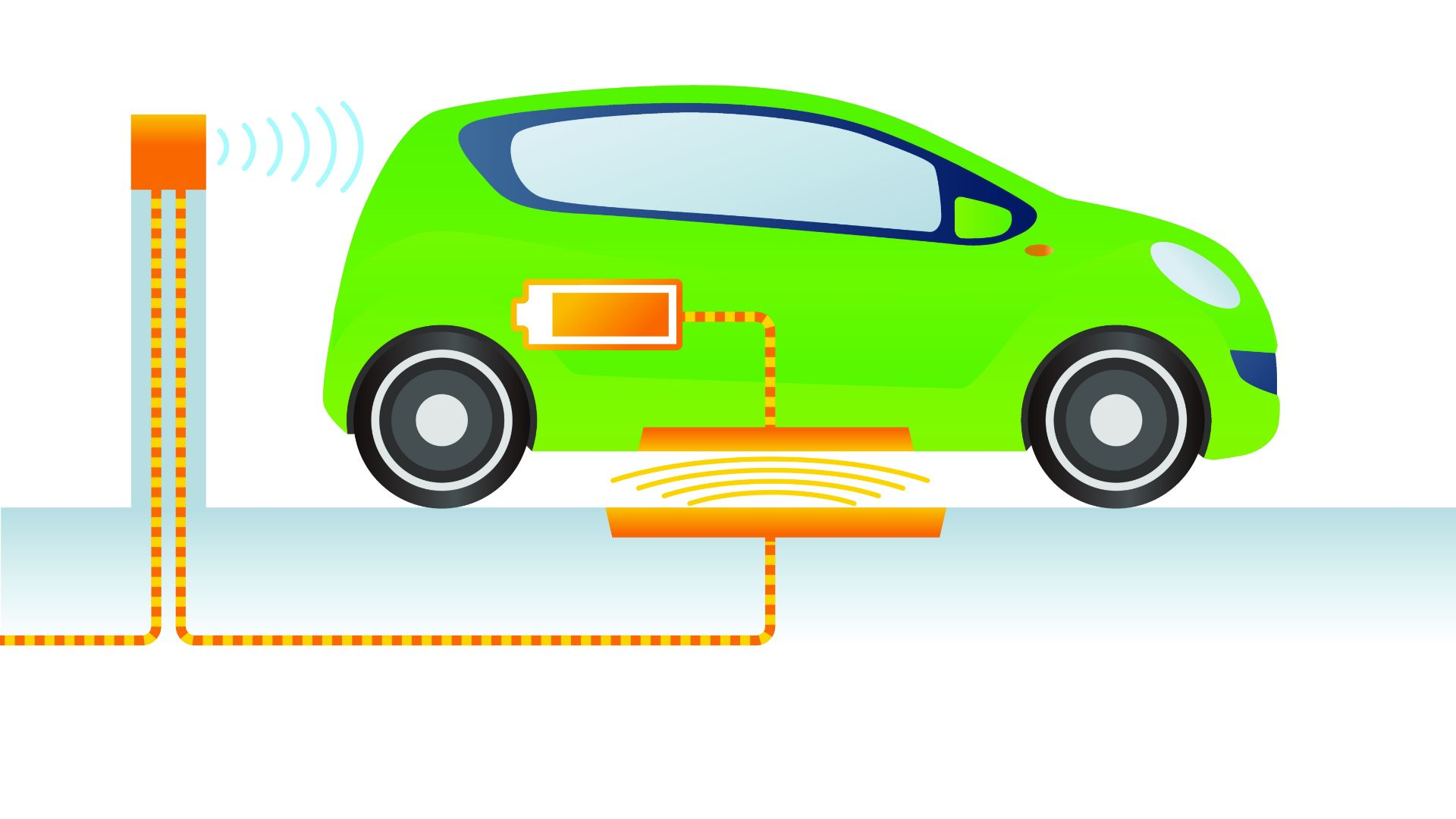Wireless Car Charging Market Size and Growth Analysis
The Wireless Car Charging Market is set to grow significantly from 2025 to 2033, driven by advancements in charging types, vehicle technologies, and installation solutions. The market is segmented by charging type (static and dynamic), vehicle type (battery electric vehicles, plug-in hybrids, and commercial electric vehicles), and technology (inductive charging, hybrid-inductive resonance, and capacitive charging).
It also includes installation types (home and commercial) and distribution channels (OEMs and aftermarket). Regional insights highlight the strong market presence in Asia Pacific, Europe, and North America. The analysis covers key ecosystem features, product services, value propositions, and a competitive landscape, providing a comprehensive forecast for this evolving industry.
The Wireless Car Charging Market is expected to be valued at USD 2.04 billion in 2025 and is projected to grow to USD 2.99 billion by 2033, with a compound annual growth rate (CAGR) of 4.85% during the forecast period from 2025 to 2033.
The Wireless Car Charging market is evolving and the adoption of wireless charging solutions is expected to significantly enhance the convenience and accessibility of EV charging stations, further accelerating the transition to electric mobility worldwide.
Get the Sample Research Report Copy on Wireless Car Charging Market: https://www.marketdigits.com/request/sample/3880
Recent Market Scope in the Wireless Car Charging Market
Technological Advancements Significant technological innovations, including advancements in inductive power transfer (IPT) and resonant inductive power transfer (RIPT), are enhancing the efficiency and convenience of wireless charging systems. These technological breakthroughs are driving the growth of the wireless charging market by offering improved charging speeds, better energy transfer, and greater convenience for users.
Government Initiatives Governments across the world are increasingly supporting the development of EV infrastructure, including wireless charging stations, through various policies and funding initiatives. For instance, the U.S. Infrastructure Investment and Jobs Act has allocated significant funding to expand EV charging infrastructure, which is expected to boost the growth of wireless charging networks.
Regional Developments In California, a groundbreaking project is underway to build the nation's second electric vehicle-charging roadway using wireless inductive technology. This project, set to be completed by the 2028 Los Angeles Olympics, aims to allow vehicles to charge while driving, further advancing the practical application of wireless charging technology.
Emerging Investment Highlights in the Coming Years
Infrastructure Expansion Significant investments are being directed toward the development of wireless EV charging infrastructure. The Gulf Cooperation Council (GCC) region's wireless charging infrastructure market is expected to exceed USD 5.5 billion by 2030, indicating ample investment opportunities in the region's rapidly growing EV market.
Corporate Investments Leading corporations, including Tesla, are making substantial investments in expanding their wireless charging networks. By enhancing the convenience of EV ownership through the integration of wireless charging solutions, companies are positioning themselves to meet the growing demand for accessible charging infrastructure.
Technological Integration The integration of wireless charging with vehicle-to-grid (V2G) technologies is emerging as a significant trend in the industry. V2G technologies allow for energy storage and grid stabilization, presenting a new avenue for investments in both energy and automotive sectors. The potential for energy management through V2G systems is likely to attract substantial financial backing in the coming years.
Policy Support Governments are increasingly creating a favorable environment for wireless charging solutions through supportive policies, incentives, and regulatory frameworks. These developments, such as tax breaks and subsidies, are making wireless charging infrastructure more attractive to investors and fostering long-term growth prospects in the sector.
Advancements and Strategic Developments in the Wireless Car Charging Market
The wireless car charging industry has seen significant technological advancements, research and development (R&D) efforts, and strategic collaborations, all of which have attracted substantial investments in the sector. The following highlights key developments from leading companies in this field.
ABB | High-Efficiency Wireless Charging Systems
ABB has made notable strides in the development of high-efficiency wireless charging systems for electric vehicles (EVs). Their technology focuses on enhancing charging speed and energy transfer efficiency, addressing the challenges faced by traditional wireless charging solutions.
Additionally, ABB has formed strategic partnerships with automotive manufacturers to integrate their wireless charging technology into upcoming EV models, aiming to provide a seamless charging experience for consumers.
Belkin | Innovations in Consumer-Friendly Charging Solutions
Belkin has introduced wireless charging products designed to meet the growing demand for convenient and efficient home charging options. Their consumer-friendly solutions, including easy-to-install home charging units, are driving the adoption of wireless charging.
Belkin has also expanded its product range to offer wireless charging solutions compatible with a wide variety of electric vehicles, increasing accessibility for consumers and promoting wider usage.
Get the complete view of 184 Pages Research Report on Wireless Car Charging: https://www.marketdigits.com/wireless-car-charging-market-1706183989
ChargePoint, Inc. | Expanding Charging Infrastructure
ChargePoint has been at the forefront of expanding wireless charging infrastructure across key regions. Their efforts in deploying wireless charging stations are essential to the widespread adoption of electric vehicles, addressing the need for accessible and reliable charging solutions.
ChargePoint has also formed collaborations with automotive manufacturers and technology providers to integrate wireless charging capabilities into existing networks, offering a comprehensive charging solution to users.
Continental AG | Research and Development in Wireless Charging
Continental AG has invested heavily in R&D to develop advanced wireless charging technologies aimed at improving energy efficiency and reducing charging times for electric vehicles.
The company has worked closely with automotive OEMs to test and implement wireless charging systems in prototype vehicles, facilitating the transition from development to commercial deployment. This collaboration is critical to the company’s strategy of accelerating the adoption of wireless charging systems in the automotive market.
Electreon | Introducing Dynamic Wireless Charging
Electreon has pioneered the development of dynamic wireless charging technology, which enables electric vehicles to charge while in motion. This innovation has the potential to revolutionize the electric vehicle industry by reducing the need for large battery capacities and extending vehicle range.
Electreon’s collaboration with GINAF Trucks to integrate their wireless charging system into a 50-ton truck model showcases the scalability of this technology for heavy-duty applications, further strengthening its position in the market.
HEVO INC | Developing Efficient and Durable Charging Systems
HEVO INC has focused on creating wireless charging systems that prioritize safety, efficiency, and durability. These innovations address critical factors that will drive the widespread adoption of wireless charging for electric vehicles.
In addition, HEVO INC has partnered with Stellantis NV to integrate its wireless charging technology into Stellantis electric vehicles. This collaboration aims to enhance the consumer charging experience, marking a significant step forward in the market for wireless EV charging solutions.
Frequently Asked Questions (FAQs) on Wireless Car Charging
1. How big is the Wireless Car Charging market?
The global wireless car charging market is set to experience substantial growth. Valued at approximately USD 2.04 billion in 2025, the market is projected to reach USD 3.09 billion by 2033, reflecting a compound annual growth rate (CAGR) of 124.6%. This growth is driven by advancements in technology, increased adoption of electric vehicles, and the growing demand for efficient charging solutions.
2. How many cars have wireless charging?
While the exact number of vehicles with wireless charging capabilities is not readily available, several electric and hybrid car models offer this feature. Notable models include the BMW 530e, Audi Q7 e-tron, Hyundai Ioniq Electric, Nissan Leaf, and Tesla Model S. As the adoption of wireless charging continues to grow, more automakers are expected to integrate this technology into their upcoming models, making it a standard feature in many electric vehicles.
3. Is EV charging station profitable in the US?
The profitability of EV charging stations in the United States depends on factors such as location, frequency of use, and operational costs. While some stations are already profitable, many are still in the investment phase, aiming for long-term revenue as EV adoption increases. The growth of the electric vehicle market and the expansion of charging infrastructure create promising revenue opportunities for station operators, especially in high-traffic areas.
4. Which country has wireless charging roads?
Several countries are actively exploring or implementing wireless charging infrastructure for electric vehicles. Notable examples include:
Germany: Developing electrified roads using overhead cables, rails, or induction.
Sweden: Launching projects for electrified roads.
Italy: Innovating with wireless charging roads.
France: Plans to build 5,500 miles (8,850 km) of electrified roads by 2035.
Norway: Implementing wireless charging roads, including the one in Trondheim.
5. Is wireless charging the future in Automotive & Transportation?
Wireless charging is widely considered a key technology for the future of the automotive and transportation industries. It offers significant advantages such as convenience, efficiency, and the potential to reduce dependency on traditional plug-in charging. As the technology matures, with ongoing R&D and pilot projects, wireless charging is expected to play an important role in the development of next-generation transportation systems.
Get a Discount on the Premium Research Report on Wireless Car Charging Market: https://www.marketdigits.com/request/discount/3880
Top Innovations and Technologies in Wireless Car Charging Market | Top Players Driving the Future
WiTricity Corporation
WiTricity continues to lead the field in wireless power transfer through magnetic resonance technology. In January 2024, WiTricity introduced the ICON EV, marking a major milestone with the launch of the world’s first wirelessly charged electric golf cart.
This innovative solution reflects WiTricity's goal of expanding wireless charging technology beyond personal vehicles and into other sectors like golf carts and public transportation, offering unparalleled convenience and efficiency in wireless power delivery.
Qualcomm Technologies, Inc.
Qualcomm has been at the forefront of wireless charging solutions, particularly in the automotive sector. In May 2024, Qualcomm unveiled its Copilot+ PCs, integrated with the Snapdragon Dev Kit, which significantly enhances the performance and efficiency of wireless EV charging systems.
This new development represents Qualcomm's strategic focus on advancing wireless technology, making electric vehicle charging faster and more seamless for users globally.
Wireless Advanced Vehicle Electrification, LLC (WAVE Charging)
WAVE Charging specializes in providing wireless charging solutions for electric vehicles, particularly for large-scale, heavy-duty vehicles such as buses. By enabling wireless charging for public transportation, WAVE Charging significantly reduces vehicle downtime and maintenance costs, promoting the efficient operation of electric public transportation systems. Their solutions are designed to integrate seamlessly into urban infrastructure, creating a cleaner, more sustainable public transit network.
SAE International (SAE J2954 Standard)
Though not a company, SAE International's J2954 standard plays a pivotal role in the wireless EV charging ecosystem. The J2954 standard sets guidelines for wireless power transfer to electric vehicles, ensuring safety, interoperability, and consistent performance across different manufacturers' charging systems.
This standard is a crucial element in the widespread adoption of wireless charging technologies, promoting industry-wide compatibility and accelerating the deployment of wireless EV chargers.
Other Trending Reports
Automotive DC-DC Converters Market: https://www.marketdigits.com/automotive-dc-dc-converters-Market
Biometric in the Automotive Market: https://www.marketdigits.com/biometric-in-the-automotive-market
EV Charging Connector Market: https://www.marketdigits.com/ev-charging-connector-market
Artificial Intelligence (AI) in Automotive Market: https://www.marketdigits.com/artificial-intelligence-ai-in-automotive-market
Automotive Cybersecurity Market: https://www.marketdigits.com/automotive-cybersecurity-market
Low-Carbon Propulsion Market: https://www.marketdigits.com/low-carbon-propulsion-market
Next Generation In-vehicle Networking (IVN) Market: https://www.marketdigits.com/next-generation-in-vehicle-networking-ivn-market
Autonomous Truck Market: https://www.marketdigits.com/autonomous-truck-market
Automotive 3D Printing Market: https://www.marketdigits.com/automotive-3d-printing-market
Air Taxi Market: https://www.marketdigits.com/air-taxi-market



